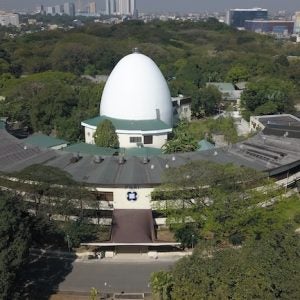Elektrárna Dukovany II (EDU II), a subsidiary of Czech power company ČEZ, on 1 June applied for a zoning decision for a new nuclear unit in Dukovany. CEZ spokesman Ladislav Kriz told CTK that this is the beginning of an important stage in the preparation for construction of the unit but at the same time it is an administrative procedure and has no bearing on selection of a supplier. He said preparation of the application took more than two years and involved approximately 70 experts. The company handed over more than 30,000 pages of documentation and attachments weighing 250 kilograms to the Building Authority in Třebíčí.
Kříž stated that everything is digitised, but with regard to the legislation, the documents had to be submitted in printed form. The company had to obtain, among other things, more than 900 opinions, decisions, consents and statements from the authorities concerned or the owners or managers of technical and transport infrastructure and other institutions in the preparation of documents.
"We are progressing in accordance with the schedule, where the individual stages follow each other. The current trend of European energy confirms our original assumptions that we will urgently need a stable, and above all emission-free, significant resource in the coming decades," said ČEZ Chairman and CEO Daniel Beneš. The zoning procedure covers up to two units with a maximum output of up to 2400 MWe, CEZ noted. "Currently, we are looking at the construction of one unit, although the various procedures have related to two production units from the beginning, said EDU II CEO Petr Závodský.
Dukovany II NPP received environmental impact assessment (EIA) approval in 2019 and the State Office for Nuclear Safety issued a siting licence the same year. Earlier this year, the Ministry of Industry and Trade issued authorisation for the construction of electricity generation. However, ČEZ emphasised that none of these preparatory steps relate to the supplier selection process.
In mid-April, the government announced that it had decided not to invite Russia’s Rosatom to take part in the tender for construction of a new Dukovany following Czech intelligence reports alleging Russian involvement in explosions at the Vrbětice ammunition complex six years earlier. China General Nuclear had been excluded from the tender process in January following pressure from right-wing parties in the parliament. A preliminary safety questionnaire to the tender will only be sent to France’s EDF, Korea Hydro and Nuclear Power (KHNP) and US-based Westinghouse.
EDF and KHNP are already arguing their case. EDF has a strong interest in participating in the tender and “is awaiting further instructions from the Czech government regarding the consultation process”, EDF spokesman Matthieu Stankowski told Práva in April. EDF vice-president Vakis Ramany gave interviews to a number of Czech publications in early May. “We want to submit to the Czech Republic an offer that will be French, based on French technologies with a European supply chain in cooperation with Czech suppliers,” he said in an interview with Radiožurnál.
On 1 June, KHNP Vice President Seung Yeol Lima, in a long interview with Radiožurnál, said KHNP had identified 116 Czech companies with a view to future co-operation. In May representatives of the Czech Energy Alliance visited South Korea including Škoda JS, Doosan Škoda Power and others. Seung noted: “Some companies from the Czech Republic are registered as suppliers of KHNP, but the technical criteria on our previous projects were a little different. The cooperation between our company and Czech companies was not great, but we hope that through this project we can expand it.”
The specifics of the Czech tender specify a reactor up to 1200MWe, which would have favoured a Russian reactor as the EDF/Areva EPR is 1,600MWe and South Korea’s APR1400 is 1400MMWe. Currently EDF is offering an EPR-1200 for Dukvany and KHNP an APR-1000, neither of which have ever been constructed and for which there is no reference plant.
In response to questions from Radiožurnál on 19 May, Ramany said: Specifically, we modified the EPR 1200 MW technology. This means that we will use the same design, safety approach and materials to maximally replicate all the proven elements that have been used in the Chinese and British power plants. So we will use as many of the same elements as possible. Some elements need to be modified. It usually reduces the number of loops in a 1650 MWe reactor from four to three, thus achieving a power of 1200 MWe. We manage these modifications because we only replicate the materials used, the security approach and other elements that have already been licensed and certified
Seung noted in his interview: “We already have a European Union licence for the APR 1400. And we are trying to obtain the same certificate for the APR 1000. And we believe that we will have it by the end of next year.”






